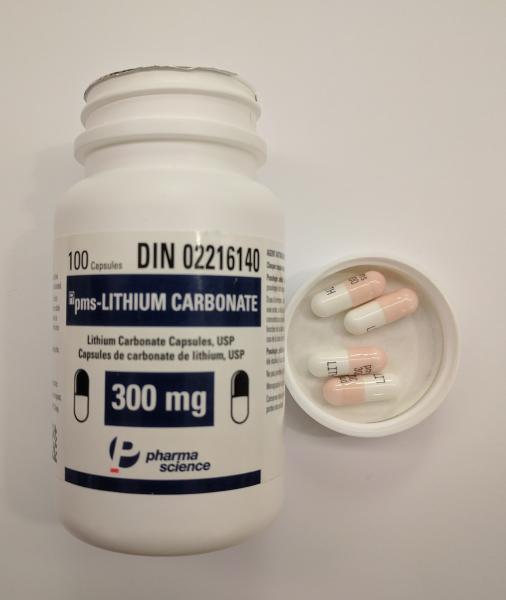Lithium is quite an element.
Located in the first column of the Periodic Table, it is a metal so soft that it can be cut with a knife. Yet, add a little water and the metal becomes incredibly reactive. If you do it right, you can make it explode. This is because the reaction creates hydrogen gas, which is flammable. It also produces a strong base called lithium hydroxide, which consists of Li+ and OH-ions and is highly corrosive. It's a nasty reaction.
Lithium ions are incredibly useful. Perhaps the two most famous applications are lithium-ion batteries and psychiatric medication. In the former, the lithium ions shuttle positive charges between the two sides of the battery; in the latter, lithium is considered a miraculous drug, dubbed the "penicillin of psychiatry," since it works very well to stabilize mood swings in people with bipolar disorder.
We don't know exactly how it works. Biochemical studies indicate that lithium ions interfere with the inositol signaling pathway inside of nerve cells, ultimately helping to relieve the symptoms of the "manic" phase of bipolar, which is characterized by agitation and hyperactivity. Interestingly, it also helps relieve symptoms of depression, which (as the name "bipolar" implies) is the polar opposite of mania.
Lithium in the Water Supply Linked to Lower Suicide Rates
Because lithium is so reactive, it is never found as a pure metal in nature. Instead, it forms compounds with other elements, like oxygen and chlorine. Though it makes up a measly 0.0007% of the Earth's crust, this trace amount of lithium may have been secretly influencing human behavior for millennia. How so? Through its ability to ameliorate the symptoms of depression.
Since lithium is in the Earth's crust, tiny amounts of it can work its way into the water supply. And because lithium isn't distributed equally around the planet, some places naturally have more lithium in the water than others. This has allowed epidemiologists to take advantage of this "natural experiment" to investigate if higher levels of lithium are linked to fewer suicides.
Indeed, that is precisely what a new meta-analysis has found. Published in the British Journal of Psychiatry, researchers determined that for every additional microgram per liter of lithium in the water, the suicide rate dropped by 0.27 per 100,000 people per year. That's not a lot, but it certainly could have an effect. Consider that the suicide rate in the U.S. is roughly 14 per 100,000 people per year. If everybody had an additional 4 μg/L of lithium in their water, maybe the rate would be 13 per 100,000.
Public Health Implications
The authors' work has substantial implications. For one thing, we should devise dietary guidelines that ensure that people get enough lithium in their diets. Additionally, the authors suggest adding it directly to the water supply, but this may be too fraught with ethical problems to attempt.




